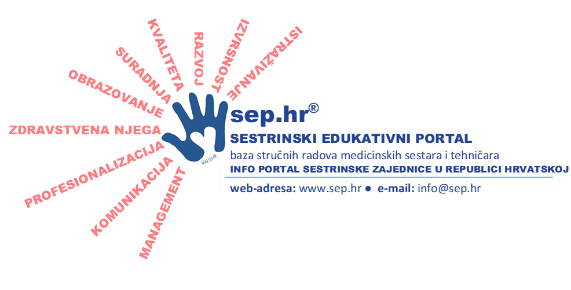Besey Ören
Turkey
Critical care unit, patient, stress
''5. Međunarodni kongres HDMSARIST-a'' i ''8. Međunarodni kongres WfCCN-a''
Šibenik, 12.-15. travnja 2012. godine
BACKGROUND: Hospitalized patients in the intensive care unit may develop anxiety, depression, and stress. Stress and negative emotions may have both immediate and long-term effects on critical care patients' psychological and physical well-being, and they are linked to delayed physical recovery.
AIM: The aim of the study was to review the international and national publications about the causes of stress in intensive care patients.
METHOD: A literature review was performed from January 2000 to November 2011. Databases searched included Medline, CINAHL, Pubmed, Cochrane Library. In order to search for Turkish publications, the Google search engine was used. Databases were selected for searching papers related to stress in critical care patients. “Critical care unit”, “Patient” and “Stress” were the key words used in this research. Clinical studies which included adult patients of 19 and older were examined. Papers were also obtained through cross- checking of reference lists. The search was limited to articles published in English and Turkish. A total of 201 international and national articles were identified and 45 of them, which were relevant to critical care patients and stress, were included in the scope of the study.
CONCLUSION: It was observed that 5%-63% of critical care patients had Post-traumatic Stress Syndrome. The most important sources of stress among these patients were the high number of interventions, usage of complicated tools and the noise they generated, being unable to communicate with others, sleep deprivation, pain, loneliness and sensory deprivation. It has been reported that music therapy decreased anxiety in patients using mechanical ventilatory support.
In conclusion, it can be suggested that nurses should minimize environmental factors which contribute to Post-traumatic Stress Syndrome, inform patients about every intervention, touch patients even if they are unconscious, and make patients listen to music.
